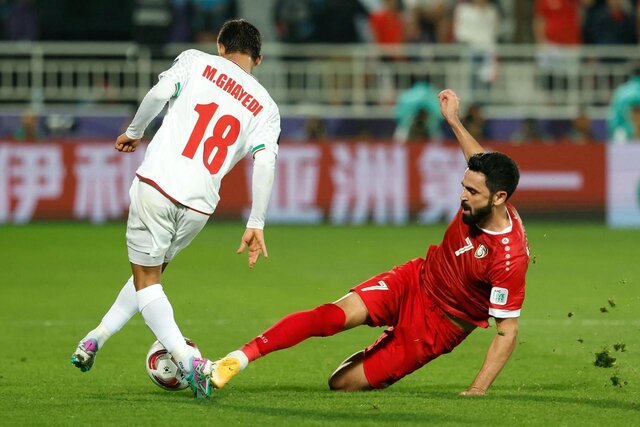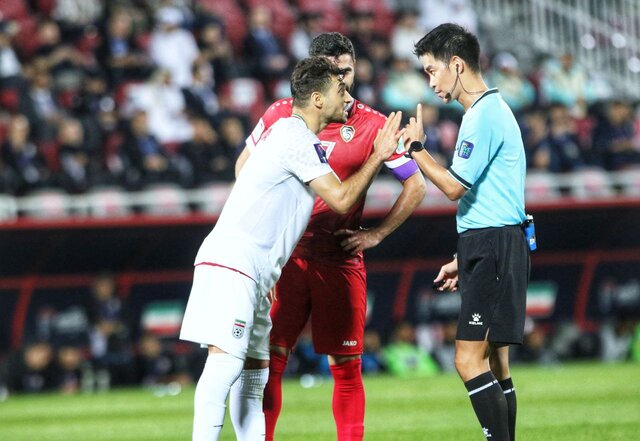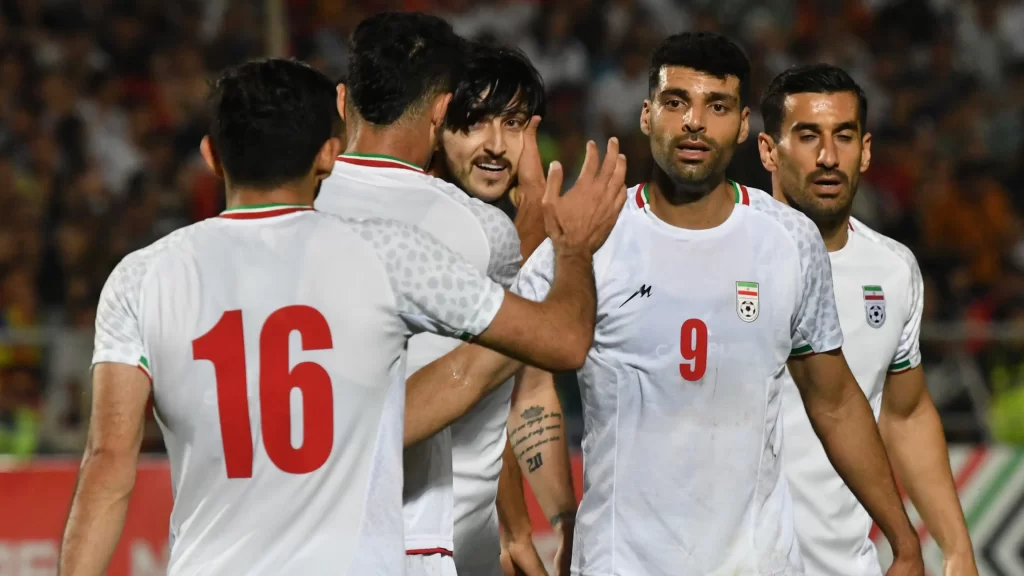It was a difficult win for Team Melli against Syria. We have expected as much from a resolute team with a shrewd Argentine coach who has tons of experience at the international level. Syria performed as expected. Tight and compact defending with an eye on the counterattack against an aging and slow Iranian defense.
That is exactly what happened in the match. Team Melli had difficulty breaking the Syrian defenses, and when they did, the finishing was poor. The surprise or more precisely, the disappointment was the performance deterioration of the senior players of Team Melli. While there was so much expected of the stars such as Taremi, Ghoddos, Rezaeian, and Azmoun, the return was less than desirable.
Nowadays, it seems that it is anyone’s guess which Team Melli will turn up at a match. They have been inconsistent varying from the embarrassing to excellent. On Wednesday, the match contained all the elements in 180 minutes of play.

It all started brightly and looked promising for Team Melli. The players distributed the ball elegantly, the passing was accurate so was the interplay, they managed to break the Syrian defense several times but poor final ball and finishing was a serious flaw in what was a good first half.
In the first 15 minutes of the second half, it was a repeat of the first until that penalty incident on the hour.
Slowly but surely, the performance deteriorated. Profligate, a touch of arrogance, and a lack of application marred Team Melli’s performance. When simple passing was much more productive than sending the ball across the field when standing your ground during a tackle is more beneficial than diving, and when covering an opponent seems to be basic and more important than going forward and leaving a wide space behind, those were the elementary errors committed by many of the Iranian players.
Beiranvand was the rescuer of the team when he saved a penalty, but he was guilty of a wild unnecessary tackle on the Syrian player during the game. Taremi is a well-known diver. It is his trademark and by doing so in front of an eagle-eyed Korean referee, he got himself into trouble and a yellow card. By the end of the regulation time, that cheating got quite expensive for Team Melli as his holding of the Syrian player to prevent a counterattack, got him the second yellow and was dismissed. Iran was down to 10 players for 10 minutes of added time and the whole of the extra time!

Azmoun looked like a player who was strange to international football. He could not make any of his shots on goal count. When he had the chance (s) it was feeble kicks straight at the Syrian keeper.
Ghoddos who is supposed to be the dynamo of the team was neutralized and failed to offer anything of significance. At times he was seen strolling in the park! Rezaeian, so pacey, so precise in his crosses was error-prone, inaccurate, and at times far too overhyped for nothing.
Khalilzadeh was gallant, but it was his mistake that led to the penalty by Beirnavand who tripped the Syrian Sabbagh.
Ezatollahi, always a weak link in Team Melli, was unconvincing in front of an opponent that lacked firepower. Time and again he lost positions and the one-to-one duels once again showing that this post requires a player several notches above what Ezatollahi is capable of providing. Jahanbakhsh was much better than his last few matches but still failed to make an impact.
Gholizadeh was a revelation but did not last long as the substitute was substituted. Ghalenoei needs to readdress such a futile move.
The fans and critics have the right to wonder, what was going on with Team Melli?
Factually, Iran had more than 70% of the ball in the first half. They were the dominant team, creating chance after chance but the finishing was weak and lacked accuracy and resolve. There is even a hint that the Iranian Players took the Syrians too lightly.
There comes the role of a strong Manager-Coach. Was the team ill-prepared for this match? Was the team’s physiological preparation adequate for such an important clash?
There is a hint from the post-match remarks that Ghaleneoi was less than happy with the player’s attitude and he specifically singled out the senior players without naming them. It was a breath of fresh air for an Iranian coach to spell the beans and criticize the performance of players when they failed to deliver. The usual narrative of “Our players were excellent”, “ it was only bad luck that we lost”, “The referee was against us”, and “the pitch was too rough and the sky was cloudy.” is such a tedious repetition and insult to fans intelligence that no person pays any attention too anymore.

Ghalneoei must be given some credit for that. He should be using the hair-dryer approach against any poorly performing player, even to the extent of benching them. It is about time that such elements be put down in their place.
We must not forget the role of the local media in the complacency of Team Melli who have never failed to over-hype Team Melli and its players. Such praises end up fueling players’ arrogance on and off the field. I have heard ridiculous claims on TV and read much such nonsense in the press glorifying Team Melli. The little true journalism that is published, the ones that truly reflect the status of the team is buried under the huge piles of praise and glory for Team Melli and derision and belittling of opponents. The biggest example was the CAFA league which exposed this mentality.

All that does not mean that Team Melli is bad, in fact, it is still a force to reckon with in Asia. Japan will be a great test of character for all involved. In two days, not much can be mended, however, a good serious talk and a few tactical adjustments will do a world of good for the squad. In Taremi’s absence, perhaps a major tactical change is required. This time, there is no fear of undermining the opponent as the players and the managers all know that they are facing a mighty team, admittedly better than Team Melli in many departments.

